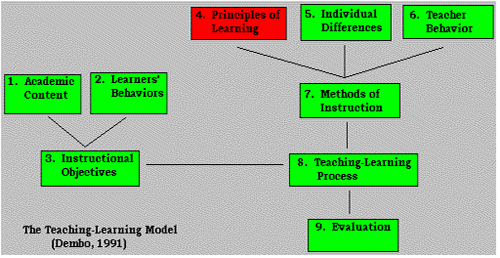Online Course
NURS 787 - Theoretical Foundations of Teaching and Learning
Module 3: Major Theories of Learning
Applying Learning Theories
Brigham Young University’s Center for Teaching and Learning emphasizes a learner-centered approach in the creation of a strong course syllabus. A clear, descriptive course syllabus benefits both learners and teachers! Let’s assume this practice is a big change for faculty and students alike, and a different approach that they have always done.
- The “bad” news is that many teachers may need to change how they think about the teaching/learning equation with resulting changes in what they do in the classroom and/or online.
- The “good” news is that teaching will become much more interesting and effective as professors let go of the burden of being the authority on the topic and embark on a collaborative exploration and discovery of knowledge and ideas, sharing in the joy of learning and the satisfaction of using new skills and strategies to connect with learners.
The American Psychological Association offers 14 psychological principles to the learner-centered learning process.As you review these principles, think about the implications for working with a particular learner group.
So the question is how does all this fit together? The model below offers a perspective on answering this question. In this module, we have focused on Box 4 - "Principles of Learning". In the other modules, we explore Box 2 - "Learners' Behaviors" through the developmental levels and learning styles of the learner. We will also consider selected individual learner characteristics (Box 5 - "Individual Differences"). The influence of standards of practice, certification, and accreditation on academic content (Box 1 - "Academic Content") has been explored. Organizing content and writing behavioral objectives (Box 3) will be addressed in later modules. Boxes 6 through 9 will be addressed in subsequent discussions/courses.

This website is maintained by the University of Maryland School of Nursing (UMSON) Office of Learning Technologies. The UMSON logo and all other contents of this website are the sole property of UMSON and may not be used for any purpose without prior written consent. Links to other websites do not constitute or imply an endorsement of those sites, their content, or their products and services. Please send comments, corrections, and link improvements to nrsonline@umaryland.edu.